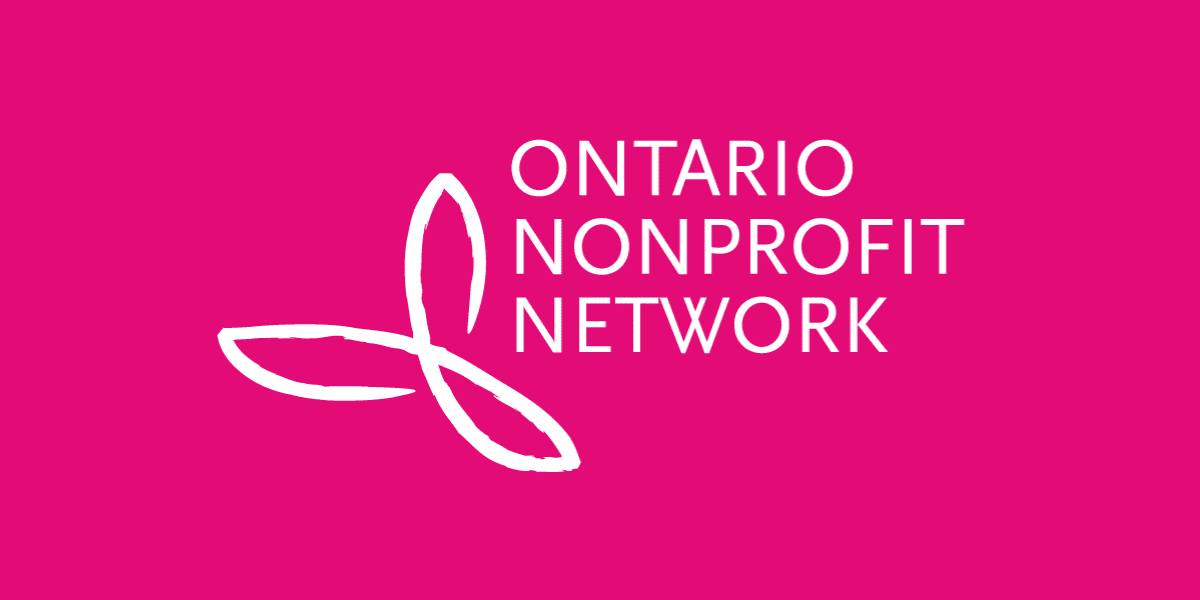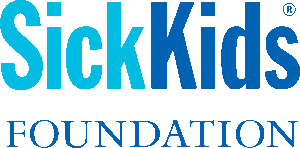Fall economic statement 2021
November 2021
On November 4, the Ontario government released its Fall Economic Statement, “Build Ontario,” alongside a mini-budget implementation bill, Build Ontario Act (Budget Measures), 2021. The government is focusing on “protecting our progress,” “building Ontario,” and “working for workers,” to “fight the COVID-19 pandemic and promote economic recovery.” This translates into targeted investments in healthcare, physical infrastructure, and skills development.
ONN is encouraged to see investments in increasing mental health supports for frontline health and long-term care workers, improving conditions in congregate settings to combat COVID-19, and expanding the care economy (namely long-term care and home care), including its workforce. However, the Fall Economic Statement squanders the opportunity to take immediate action to protect progress, build Ontario, and work for workers. There is no mention of making permanent the temporary wage enhancement for essential frontline workers to recruit and retain them for years to come, nor mention of a federal child care bilateral agreement. Neither is there another round of small business (and nonprofit) support grants, something our recent sector survey suggested would help with the recovery.
The province’s mini-budget does not reflect the critical role nonprofits play in an equitable recovery for Ontario, as partners of government. There are missed opportunities in prioritizing nonprofit and public sector driven care services and dedicating supports for nonprofits as they rebuild the communities they serve post-pandemic. The mini-budget mentions the sector in passing, and makes only a vague commitment that the Province will “work to identify opportunities to support the charities sector and expand its impact for people.”
This Fall Economic Statement focuses attention on infrastructure but fails to recognize the value of social infrastructure (such as licensed child care, community-based arts and recreation groups, and nonprofit housing) and misses the mark on how and where investments are really needed. For an equitable pandemic recovery, Ontario needs transformative measures that address the deep systemic challenges Ontarians face. Public dollars are used most efficiently when they are invested in social infrastructure that is public and nonprofit driven, which benefits both the economy and the well-being of Ontarians, rather than shareholders.
New announcements impacting nonprofits
- $12.4M over two years, starting in 2021–22, to continue rapid access to existing and expanded mental health and addictions supports for health and long‐term care workers across the province.
- $548.5M over three years to expand home and community care.
- $8.9M in 2021–22 for COVID‑19 supports (personal protective equipment, ventilation filters etc.) in congregate care settings.
- $10M new, for a total of $20M over 3 years, for Residential School burial site identification and commemoration.
- $1.6M over three years to create a database of diverse, skilled volunteers who will be screened and receive training to help respond to emergencies. ONN will be connecting with nonprofit leaders in volunteer engagement and crisis response to support their involvement.
- Temporary Ontario Staycation Tax Credit for 2022 to encourage Ontario families to explore Ontario to help the tourism, hospitality and culture sectors recover. While this measure does not directly benefit arts and culture groups, it is anticipated that the tax incentive will help ticket sales in this sector.
- $22M over three years to implement an Ontario‐made technology that will integrate the clinical information between hospitals and the long‐term care sector to streamline re‐admissions and share information with families. ONN is interested in seeing how administrative data sharing between sectors can inform data and evaluation practices across the nonprofit sector.
- Implement a new French Language Services Strategy, including a modernization of the French Language Services Act, to improve access to French-language services. This move, supported by l’Assemblée de la Francophonie de l’Ontario, includes changes that could affect nonprofits that fall under the broad definition of “government agency” in the Act, such as children’s aid societies, long-term care homes, and others that provide services on behalf of the Ontario government.
- $5M for a new Racialized and Indigenous Support for Entrepreneurs (RAISE) grant that will provide support for women entrepreneurs and Indigenous, Black and other racialized people. ONN has made inquiries as to whether this will support nonprofit social enterprises.
- Establishing a “Centre of Realty Excellence” (CORE), creating one holistic sight line across the public sector for the Ontario government to determine priority surplus properties aligned with key initiatives, including building long-term care.
- Interestingly, the Nov. 3 announcement of $5 million for Indigenous and emerging artists through the Ontario Arts Council was not mentioned in the mini-budget. This funding for the hard-hit arts sector begins to build back the cuts to arts funding in Ontario implemented in 2018-19 and 2019-20, including a $10 million hit to the OAC’s budget and the cancellation of the $5 million Indigenous Culture Fund.
Overall program and capital spending
The economic outlook is much rosier than forecast in the spring Budget.
- In 2021–22, the government is projecting a deficit of $21.5 billion, $11.6 billion (35 per cent) lower than the deficit forecast in the 2021 Budget.
- Ontario’s real GDP (after taking inflation into account) is projected to rise 4.3 per cent in 2021 and 4.5 per cent in 2022.
Program spending and wages may not keep up with inflation or population growth.
- Program spending for the current fiscal year is now expected to be 4.2 per cent higher than last year. That “spending,” however, includes a $3.95 billion boost to “COVID‑19 Time-Limited Funding and Extraordinary Contingencies” compared to last March’s budget. This fund is actually a reserve fund rather than an allocated program spending line so we have yet to see how (or whether) this will be allocated.
- Inflation is expected to be 3.1 per cent for the fiscal year. Meanwhile, those nonprofit workers subject to Bill 124 wage control legislation have increases capped at one per cent annually, exacerbating recruitment and retention efforts in our women-majority sector.
- As of spring 2021, the Ministry of Finance expected population growth to be 2.1 per cent this year.
- With time-limited COVID-related funding tapering off, overall program spending is expected to fall from $176.1B this year and $176.4B next year to 175.6B in 2023-24. That said, (non-COVID) Health Sector spending is budgeted to increase 2.4 per cent from this year to next; Children and Social Services will rise 1.1 per cent and the Justice Sector will remain flat at $4.8B for the next two years. Taking into account both inflation and expected population growth, these forecasts could reflect real spending restraint.
Capital infrastructure in social services is set to decline next year.
- On the infrastructure investment side, the ten-year plan for capital spending has been increased by $2.7B to $148.1B, with an updated plan to spend $17.1B in the current fiscal year.
- Health and “Other” sectors see an increase in capital investment from the spring budget, while Social Sector infrastructure spending sees no boost from the spring and will decline by over 50 per cent next year, as first revealed in the spring budget.
What’s in Bill 143, the mini-budget implementation bill
- Schedule 5 amends the Credit Unions and Caisses Populaires Act.
- Schedule 7 amends the Election Finances Act with respect to third-party spending – but only to remove the penalties for media companies that sell third-party advertising space to groups that are exceeding the allowable spending threshold. There are no changes that would benefit nonprofits that participate in election advocacy involving paid advertising.
- Schedule 9 implements the increase to the minimum wage.
- Schedule 10 amends the Far North Act with respect to Ring of Fire resource extraction, establishing a joint body that would play an advisory role with respect to land use planning in the Far North and criteria for Indigenous participation. It also repeals the section of the Far North Act that regulated resource extraction in areas not subject to a community-based land use plan.
- Schedule 13 creates a new Ministry of Francophone Affairs and amends the French Language Services Act.
- Various schedules provide for tax changes that may affect nonprofits, including property tax relief and Employer Health Tax (late payment fines) provisions.
Reactions from opposition parties, media and industry
The Ontario NDP states that the Fall Economic Statement has no help for everyday people, while the Ontario Liberal Party similarly highlights how it leaves millions of Ontarians out in the cold, especially women, parents, and children. The Ontario Green Party urges the current government to focus on building a better and more livable future for Ontarians rather than paving highways across Ontario’s prime farmland and greenbelt.
The Ontario Chamber of Commerce comments on the lack of relief supports for small businesses. Media such as TVO and the Toronto Star highlight the top things the public needs to know about the mini-budget, while the Globe and Mail comments on the tensions between debt and growth.
Nonprofit Sector Reactions:
- Ontario Community Support Association applauds expansion of home and community care and programs to expand the care workforce, but urges the government to do more to address wage disparities in the sector.
- YWCA Ontario Coalition on how the Fall Economic Statement left a lot to be desired.
- Community Living Toronto applauds new funds to improve congregate settings vulnerable to COVID-19 transmission.
- Ontario Coalition for Better Childcare and the Association for Early Childhood Educators were disappointed the statement did not include new funding to address the needs of early childhood educators or a signed child care agreement with the federal government.
- Environmental Defence is concerned about spending on highways that may encourage more car commuting, and the housing task force that may provide cover to develop precious farmland and green space.
- The Cooperation Council of Ontario/Conseil de la coopération de l’Ontario applauds the attention to economic development and immigrant entrepreneurs, but would have liked to see support for enterprises that specifically create a better Ontario.



